Transcript
Jordan Hansen: Hello everyone and welcome. I'm here today with Mark Ross. Uh, Mark Ross is the CEO and founder of Dragin. Now, mark, I did some prep before this and I was like, okay, looking at Dragin, you know I'm familiar with it. It's an awesome software you've built, but you have so much stuff on LinkedIn.
You actually have the domain Mark ross.com. Have you had that a long time or did you have to pay like a pretty, I would love to have my name and Mark Ross, as I would say, is probably more common than my name. Come on. What's the story?
Mark Ross: Yeah, I actually collect URLs. I have a whole bunch of them getting, Mark Ross took me a few years, but I finally, it got, it got resold and then I was able to negotiate the guy.
I bought it for a thousand bucks. That was it. What?
Jordan Hansen: Oh my gosh. If someone offered me 10,000 for mine, I would pay right now. For sure. Like that's, that's a 1000. That's, no, that's a no brainer. Now would you buy one I really want is is my last name, hanson.com, because then I could give like one for each of my kids, you know, like zach@hansen.com.
Would you wanna buy ross.com? If you could. Probably, right? That's like a. It's gonna be impossible to get, but
Mark Ross: I actually tried Ross family 'cause I have four kids. Okay. Yeah. And I thought you know their name at Ross family and it could be their emails that wasn't available. But I, like I said, I have so many crazy domains that Yeah, it's, it's, it's like a little bit, it's a little bit like real estate.
Jordan Hansen: So getting Mark ross.com, that's pretty good. Anyway, on mark ross.com you have like coaching, which is like nothing to do with Dragin. At all. Right. And really even the industry, you're really like just being like a coach to help them get a job. Kind of like professional preparation, which can be coding kind of in the trading finance area.
Why are you doing all this that, well, that's my background, so, okay. Well, I knew that, I knew the trading finance was your background, but you wouldn't have to do what, you could just focus on your software business now.
Mark Ross: Yeah, I don't coach very much anymore. I, I didn't take down my site. And quite frankly, so this, this is very funny timing because literally yesterday I put finishing touches on a book that I've been working on since 2016.
Jordan Hansen: I saw I was gonna bring that up. That was next. I was like, also writing books author over here too.
Mark Ross: So I was writing that, that was right after I got hired by State Street. And people always talk, you know, esp like with students and, and young professionals, I'm always hearing, oh, it's a terrible job market. It's a terrible job market. And I've been hearing that. My entire professional life. Yeah. Yeah. I never struggled to find a job, Uhhuh, and it's not like I'm some privileged individual. Like I, I, I was in weird situations going from a no-name undergrad. I got into a very competitive master's program. I got into Morgan Stanley and then State Street, and there was no one holding my hand, no one making referrals to me.
I did it all myself. So a lot of the strategies that I used and worked, I would just write them down as I was doing them. Even back then, like 20 years ago, you were doing this.
So in 2016, I, I was working for State Street at the time and I was taking, I was traveling about three hours a day. It was an hour and a half commute each way.
And I just took out my laptop and I just started writing ideas down. And at first it was just gonna be like a career guide, you know, for resumes, interviews. But I found that the balance was so heavily geared towards resumes. I figured let's let that be the first book. So I literally started in 2016, finished it yesterday, book in progress year, just a nine year book in the making.
Jordan Hansen: It's kind of like something you've just had in your mind and you just. Been working on a little at a time. Uh, like why? Because you haven't really been in the job market looking for a job for five years.
Mark Ross: Right. So, well, this, this will go back, all goes back to kinda my story with my master's degree and how my career made so many strange kind of shifts.
But when I graduated from my master's program, the director of the program said, mark, how'd you like the program? You know, financial engineering was kind of a new thing. It was, it's like a mush of mathematics, finance, and coding all in one. So he asked me how I like the program, and I said, it's great. The only issue I have is all of the homeworks are due in different programming languages, c plus plus, Python, sql.
Yet when you look at the requirements for the program, the prerequisites, none of the programming languages are on that list, so that's not really fair. So he said, I see. So what should we do about it? I said, honestly, right before the program starts, you should hire an instructor to teach all these languages.
He said, I'm glad you mentioned it, because next year we have an instructor doing just that. I'm like, no way. Who is it? He's like, it's you. What? That's what he said. So I became an adjunct professor at Baruch College. Yeah. I did that for a bunch of years, and then after a few years I was like, I know this content so well.
I started recording myself at home. I set up a green screen and I, you know, I set up the whole system and I started recording the videos, and then I got an idea to. Release the recordings online and charge for them and make a school. The original one was excel vba course.com, and that turned into Script Uni.
And I actually looked for business partners and Baruch College actually partnered with me on the script uni side. So in building that, I started getting many students. I had thousands of students who took my programming courses. And then very often when they would graduate, they'd reach out, Hey, mark, could you help me get this on my resume in an effective way?
And they were all just like coding skills, just writing Python, comma simple. And I'm like, that's not an effective way to write it. So I was trying to think of how to creatively do it, and I came up with some pretty good strategies and that led to people saying, you have really good insight. Could we maybe sit down and do?
And then I started charging for coaching and that spiraled completely outta control.
Jordan Hansen: Yeah. So it's like none of these things you sought after it all just kind of happened. It's like, Hey, we need someone to do this, and you're gonna be the guy. And you're like, okay. Sure. So were you teaching as an adjunct professor full-time?
Mark Ross: It was not full-time, no. Okay. It was on Sundays and some evenings in the week. I would leave work, especially when I was working at Morgan Stanley on the trading desk for about three years. I'd worked earlier in risk, then I was back on the trading desk. I'd leave early two days a week and sometimes in Sundays to go teach. Yeah.
Jordan Hansen: Got it. And you go over there and teach there. But you had a good experience meeting with all these people and, and the university had no problem with you starting your own online college. I mean, you said you partnered with them. It seems like it would be a little bit of competition. No.
Mark Ross: It kind of was, but they weren't looking to make money off the programming aspect. They were looking to generate quants. Yes, which is much more math heavy. The coding was just like, we need to get this outta the way. It was more they need to have this done before they come in to the, not to mention they make money every time. This is, we're talking this, this happens eight years ago. We launched the program and they've been getting residual.
Ever since they still got them. So they're not complaining. 'cause they partnered with you, you're saying because they partnered. I actually went to Princeton. Okay. I went to Columbia. I went to a whole bunch of programs and I pitched this to them and I said, Hey, I'll give you 25% of all my revenue. All you have to do is just give me your seal on my home screen.
That is literally all I need. And when a student graduates, I wanna be able to give 'em a dual certificate. Your program of mine. And there was very interesting for you. Most of them were just like, you're just not worth it. We're making millions and millions a year just in students. And then we have all these alumni who are making insane donations and you're liability.
We don't know you well enough. Right. And Baruch is just very excited.
Jordan Hansen: It kind of makes sense. They're not wrong, but yeah, I can understand. So you were doing script uni now. Did you, were you doing also the adjunct professor at the same time or is it kind of, this is a time when you stepped away and you're like, I'm gonna do script uni and not do adjunct professor.
Mark Ross: I did everything at once. There was a period in my life when I was sleeping. You're like still doing it. I'm like four hours a night. Much script. Uni is still running officially. You're still the CEO, is that, how much time are you putting into that right now? I'd say close to zero maybe. Is it running by itself?
Like I, I have TAs who great grade all the homeworks. Okay. Take care of everything. Everything's so automated, so yeah, I basically do not work.
Jordan Hansen: Okay. So you have the, um, you have all the content. You said you recorded it all, so you have all the content going through and then they have the assignments at the end, the students submit it and then the, your TAs go through and grade it, and then you're really just doing very high liable admin stuff at this point.
Jordan Hansen: Literally what I do is, you know, once a quarter I just get a screenshot from the database of the total amount of students, total amount TAs, you know, just send out the checks or whatever. It, it, it takes a couple minutes. I see.
Mark Ross: Okay.
Jordan Hansen: But happy, are you happy you've done it? I'm happy with everything that it's been a crazy ride. Everything I've done's been, been nuts and I loved it all. So. Okay, so we're gonna step back. We, you graduated from university, you started as adjunct professor and you also joined, uh, Morgan Stanley at that point.
Mark Ross: Correct.
Jordan Hansen: In risk, you said, is that where you started risk management?
Mark Ross: Yeah, and like I said, I had, I had no background. I did not belong in such a good firm. I basically snuck my way in. Tell me. So when I was. When I was in Baruch, I asked the director if I could TA for the risk management course in the financial engineering program. He was the COO of risk at the time at Morgan Stanley. Oh, okay. I see. I gotta get in. This guy's good graces.
I TA'ed for him. We had a really good relationship, but towards the end of the class I was like, shoot, I'm not working at Morgan Stanley yet. This is failing. So I emailed him at his work address and I just wrote, thanks Ken. And he opened the email and it just said, I just wanna show my appreciation for being your ta.
Can I take you out to lunch? So I went to the city, took him out to lunch. In the middle of lunch, he just sat up and was like, you should work for Mickey. And a week later I was working for Mickey.
That was it.
Jordan Hansen: And you're like, I should, this is exactly what I Yeah. That, that's, that's right. So I mean, you had experience, you say you weren't qualified or what, I mean, you were been TA-ing for the guy for a long time, so you must have, you had experience, you were there, you kind of knew what you were doing. Going in.
Mark Ross: That's not, getting into a really good investment bank is not, is not simple. Right. Usually it's, it's the Ivy League students with the amazing GPAs and the good internships. I had no relevant internships. It just, it wouldn't make sense on paper. Wow. That's awesome.
Jordan Hansen: So then you started there and how did you like it there?
Mark Ross: It was good, but it didn't take very long for me to realize risk management is and risk it. Where I was working is like, it's the back office of the back office. I wanted the energy of Wall Street I wanted where the money was, the front office. So I immediately started networking within the firm, and that's how eventually after leaving and coming back, I made my way onto the trading desk. But,
so it was the risk side.
Jordan Hansen: You're saying you wanted like to be more involved with the trade, the fun part of, of Wall Street, right? You're a Wall Street ish. Right.
Mark Ross: My wife came to visit me once she walked into the risk floor, she said. Hey, mark and everyone went sh no way. She came over to me and she's like, you do not belong in a place like this. Like I'm working on it, know.
Jordan Hansen: So how long did it take, did you say three years? Is that how long? How long did it take?
Mark Ross: It was, I was in risk for three years networking with like every managing director in the firm. Eventually I found one that I wanted to work for. I spoke to him. He's like. I love you. This is a great, this would be amazing.
You totally should be on my team. He went to his bosses who ran the trading desk. They both said no, they didn't even meet me. They said, he's an IT guy. He's back office. He's never squared off with clients. We don't need him on the trading desk. So I said, is that their only complaint that I don't have client facing experience?
He said, yes. I said, okay. I'll tell you what I'm gonna do right now. I'm gonna leave Morgan Stanley. I'm gonna get that experience. We're gonna keep in touch and you hire me when you have an opening. He said, I don't think it's a good idea. You shouldn't leave such a good firm. I was like, I don't care. I made it my mind.
Yeah. And literally the next phone, I was getting calls from recruiters all the time to come do risk at hedge funds or whatever. 'cause I had Morgan Stanley's brand on my resume. Anyhow, the next recruiter calls like, Hey, I'm recruiter for State Street. It's a risk position. I'm like, not interested. I only wanna talk to clients.
She's like, no, no, no. It's a client facing risk position. You need what? The clients with their risk. Okay, so pension funds, hedge funds. I learned more about it. Like fine. One round of interviews, I got the offer, went to State Street, and I put an alarm on my phone every six months. The alarm said, remind Steve.
Every six months I reached out, well, six months, 12 months. I got a coffee with him. Both those times before I hit the next six month period, I get a phone call from him. He's like, you're still interested in working on my team? Yeah. He said, get over here as fast as you can. We didn't have a scheduled interview at all.
I ran three blocks. I grabbed a tie. We had these little cubbies by our desk, threw on a tie. My boss was like, mark, why are you putting on a tie in the middle of the day? I was like, lunch. He's like, no one wears a tie to lunch. Don't worry about it. I ran out, interviewed with him, the head of sales, the two heads of the desk.
They made me an offer the next day so that it worked.
Jordan Hansen: Like really what you were. You showed, you had the experience, he kept kind of pitching for you and once he saw it, he was like, yeah, we're able to get you on. Just like that.
Mark Ross: Someone on his team resigned. They went to work at a hedge fund, Uhhuh that he's like, he, they were literally about to put in job posting thing and he is like, wait a minute. Mark's been making me crazy. Every six months he'd be perfect.
Jordan Hansen: Follow up, fortunate in the follow up right there. Yep, that's it. So then you went back to Morgan Stanley?
Mark Ross: I went Back then I was on the trading desk. That was, I have a YouTube video about this. I literally tripled my income from, and I was an associate then and I was an associate in risk and I was making three times as much money with the same title, which is crazy just because the front desk is so much better.
Right. And it was, it was a fun job. I loved that job. So I did that for a bunch of years. Yeah. And then eventually my coaching income was starting to overtake my front office income. And the front office income is no joke. It's not bad. Yeah. But I also, in the back of my mind, I really wanted to do this Dragin thing.
It is like, there was a lot going in here and it was, it was slowly creeping up to me. I really wanted to start a tech company and eventually it won me over. I did a little stint in between, but that was 'cause I wanted to gain a very specific set of experience.
Jordan Hansen: Okay, so I'm gonna slow this down just a second. So you have this background in really tech, right? A huge tech background with IT. You've been working risk or you have a lot of experience also with the risk side. You decide to go front desk, but you're kind of, you're doing when you're working with clients. But also risk at State Street. And then you move over, back to Morgan Stanley just doing like trading.
Where is IT? I mean, how are you keeping your tech skills? Oh, that's all I was doing was tech skills. So I was the, they called us Strats. Okay. Which basically means we create the analytics for the traders. We understand all the finance and analytics. My specific job was to design and automate all the reporting and all of the pricing that went on to hedge fund clients. Yeah.
Mark Ross: Like I remember I was actually interviewing with a hedge fund a few years later and they were like, do you have a portfolio we could look at? And I said, whoa. Do you prime brokerage with Morgan Stanley? They're like, yeah. Said, do you borrow stocks from them? You know, stock loan securities lending?
They said, sure, we do. I said, great. That report you get every morning, that's mine. I built that. Yeah, I built that. I that portfolio.
Uh, right. So there's a lot of really cool automation. I did, uh, like I was responsible for a lot of the automation. They made a lot of p and l because of what I did there says. It's pretty cool. Yeah, it was fun. It was automation, coding pretty much all day. I would say 90% of my day was programming.
Jordan Hansen: So Dragin though, I still, I see it as kind of a different, I mean, it's tech, right? It's in the financial sector, but it's a little bit different besides you're working with the risk, right?
You're helping assess with risk, but it's kind of different than what you were doing at Morgan Stanley. No, not, yeah. It is. It is. Very, very. So why was it, in your mind, why were you thinking, Hey, this is something I'd like to build? Or were you just thinking, I want to build a tech company in the finance industry?
Mark Ross: Well, so I have a lot of friends in the revenue-based finance space. Mm-hmm. And that space, it's getting better, but it was very, very manual. Like, extremely manual. And it was taking people hours to get a single offer out when they're just looking at a few files, which is ridiculous. Mm-hmm. So I have a bunch of friends in that space, and a lot of them like.
Were approaching me, Hey, we're looking for someone to run technology for us. Maybe you can automate some of our stuff. And I was like, I got my master's in financial engineering. I am VP at Morgan Stanley, like I'm the king of the hill right now. My future is set in stone. I'm not throwing it away to join.
Industry that's like very poorly regulated. Like it just didn't sound appealing to me.
Jordan Hansen: Yeah. It's kind of shady over not, we know it's not shady, but it looks shady from the outside. Yeah.
Mark Ross: But I was getting enough requests from people that I started doing research and I realized they were all right. Yeah. It isn't industry that desperately needed automation. I didn't make any moves. I was just like learning. I was absorbing. I went to a couple funders and I checked out their offices and I learned what they were about, but. No career moves. Then it got to a point in, I think it was late 2020, where I decided I'm leaving Morgan Stanley.
Just the coaching was so much better. I was working literally two hours a day coaching and making the equivalent of my Morgan Stanley salary.
Jordan Hansen: Yeah.
Mark Ross: It didn't make sense.
Jordan Hansen: Mm-hmm.
Mark Ross: But I did want a stable job. I had a house. I have kids like it. It just. I couldn't take the risk of relying entirely on my coaching clients.
Um, so I went back to Numerics, which is a financial software company I had worked for 10 years earlier. I know everyone, all the executives there, and I did something I always wanted to try, which is software sales, which was very, very helpful in me being successful at Dragin later on. So I did software sales there for about eight or nine.
And then one of these funders came where he is like, please, we need a CTO. I was like, absolutely not. He's like, what's it gonna take for you to automate this space? 'cause I need my stuff to be faster. And I said, give me the right size investment. I will start a company that will fix everything for you.
That's what we did. Gave me my, I think that's how we met. We introduced that. Is that is what happened. That that's how, that's how we got together. Um, made a big capital injection, started hiring a team built software and we, we hit the ground running like the very first thing we built that Dragin. Nobody else in the industry has ever had ever seen before.
They didn't even know it was new, but it was new. So like it was, it was from day one, it was so much fun because we were just. Beating everyone immediately right off the bat.
Jordan Hansen: Can you tell what it is? I mean, I wanna know a tech guy. I don't care if we're talking tech and maybe it's not interesting to some people to me. I'm in, I want to hear this. What was the, okay, so
Mark Ross: at that point, the really the only automation in the revenue based financing space was app readers. And what they did is because all their deals came in from brokers. All the brokers would have their own templates. So a business owner would reach out to a broker and say, Hey, I need some financing.
I'm looking for a hundred thousand dollars. The broker would give them their form, they would fill it out, and then the broker would submit it to different funders who would fund it. So what the tech companies were doing is they were mapping the broker forms like big broker X, Y, Z, here's where her name is.
Here's where last name is, here's where address is. Every tech company that was doing this, and there weren't many, I think there were like two or three in the whole space doing this. They were mapping it, which means if a new broker showed up, which happens very often, or a broker would change their form mm-hmm.
The system, the the program would fail. So you're looking at maybe a 60% success rate with people who got from brokers all the time. Our big first move is we came in and we made. A completely dynamic app reader that didn't care if you took a napkin and just scribbled the name down in address and it read it and it recognized it.
It was kind of a quasi ai 'cause it was smart enough to know that's a name, that's an address, that's it. And it would just go to your CRM and put everything in the right place. We were literally the first. Now there are a bunch of people, a bunch of companies doing it. It's, there are a bunch of things we've done that we were just like first, first, first, first.
And it's cool. And we have, actually, I'm making an announcement in about a month and a half that's just gonna. Blow every other company's mind and they're gonna do it six months later.
Jordan Hansen: This is, of course, yeah. That's how it's supposed to go though, right? So it was just like a really good OCR you're, you're kind of reading these characters, you're interpreting it really well, rather than maybe everything else is kind of hard coded, really, depending on location of where these things are.
I understand how this works. It's a very common thing. In fact, I'm kind of amazed at some of the funders accept it like this. They're just like, I'm like, how do you process these applications? They're like, yeah, they just email 'em to us and I'm just like, oh my gosh.
Mark Ross: Right?
Jordan Hansen: You have to go through these manually emails, and that's kind of what you were dealing with.
Mark Ross: That's, that's the next huge thing we did. So we did the OCR thing. It was great. Everyone who did a demo with us was very impressed. But I felt there was a fundamental problem with what we did. And I see this on Shark Tank a lot. Somebody shows a really cool thing. Mm-hmm. And the Sharks say that is a great product, but it's not a company.
And that's what I was feeling at that point. I'm like. I made an app reader, but is that a company? It didn't feel right and then it just hit me one day. I'm like looking at some of these clients, like there are way too many deals coming in and they're dragging and dropping in this and that. What if we could identify all the file types out of the email inbox, decide if it's a legitimate deal.
Read the app, automatically decide whether to proceed with it, move the email outta the appropriate folder and lower all the data on the CRM, all hands off. Now, at that point, these funders, like any of the mid-sized ones, had 10 to 20 people doing this manually every day. If my dream would've become a reality like.
Literally all of them are gone now. You don't wanna fire those people. You work on something else, whatever. Right? Yeah. And we did it, it actually took way longer than I would've wanted because it, it was very complicated to build at first, but we did it. We were the first ones in the space then to do email automation.
What's interesting is the majority of the copycats that came afterwards. They all said, forward us your emails, which to me sounded crazy. Like the risk of sending emails out of your email inbox to a different company and they were just mm-hmm. And it gets so messy and you don't get your emails organized.
There were, and the way we have it plugged into the CRM, you could do responding back to the same thread. So the brokers love it. Like, everything about it was so beautiful. Yeah. We just, we did it first and we did it right. Which is very interesting. 'cause a lot of times you talk to people in business, they're like, you don't have to be the first, you have to be the first to do it.
Right, right. We nailed both of this. That was our big break. Like once that came out. That propelled us to, you had a company, what you're saying? It wasn't just had, yeah, it was like a company because then we weren't solving a problem. We were solving like an entire part of, entire part of the cycle. Mm-hmm.
Like to get to the underwriting. That entire processing stage we fixed. It wasn't like a screw, we just did the entire, uh, mechanism essentially.
Jordan Hansen: Would you say, like you're saying, you're continuing to go, you have a lot more you can do. I'm sure you know you're early. Really. 2021, I think is what it said. That's what, that's when we started. That's when, yeah, the name, it's been four years. Right, which is nothing.
Mark Ross: We, we started selling early 2024, so we we're a year and a half in selling.
Jordan Hansen: Okay. Okay. So you barely started selling. You're still early on in the stage. There's so much left to go. What do you think is like the coolest thing you're looking forward to in technology? We'll start with there.
Mark Ross: Okay, so I can't tell you what. Coming out in a month and a half because it's so ridiculously good that if I say it, every other tech company's gonna be scrambling. Yeah, yeah. but I can tell you that our last press release, which we did I think about two months ago, we went through a list of like a little under a thousand websites and we picked only the ones that are state Registration type websites that are legitimate websites that have information, and we set up an AI system. Mm-hmm. That when a deal comes in with an app reader and all of the pre decline rules pass, so if you're a funder and it says, you know, we don't do Texas and it's a Texas deal, we'll just put it in the CRM decline.
But if everything passes. Industry's good, state's good. We then go to the web and we scrape it. What we do is we use the name of the business, the name of the person, the, the um, the address, the EIN, if it's in the form, whatever we can, and the accuracy is insane. It's a hundred percent effectively. Hmm. We find the business and then we get all of the meat we get.
Information about, um, business registrations. We get all the verified information when the business was incorporated, when they started selling, we scrape all the review sites and summarize the reviews from the customers, how well the business is doing. So we launched that about two months ago, and the phones were off the hook.
Everybody wanted to see this. Even people who before told me, no, not interested. We're happy with our CRM. They're like, can you plug into our CRM? Like, yeah. Maybe in some cases yes, in some cases, no. So that's, um, as of recording this, so it's, you know, July 30th, I predict within three to four months you're gonna start seeing a lot of that from other tech companies.
Yeah.
But the next thing we're doing is it's, it revolves around ai, but it's going to now come after the underwriters. So until now we were like focused on the processing part. Now it's getting a lot smarter. What we're building is just gonna, it's gonna just know whether you wanna do the deal or not.
It's not gonna make the decision for you. All the CEOs are concerned about that. I don't wanna machine decision.
Jordan Hansen: Yeah. They want a scorecard more than a decision.
Mark Ross: Right. It's gonna give everything that you need to know in such a beautiful way. It's gonna be like obvious. You're gonna be able to, right now our clients are getting offers out in five to 10 minutes, which is industry breaking.
Mm-hmm.
That's gonna get down significantly. Once this comes out, it's, it's gonna be a game changer.
Jordan Hansen: Yeah. That's awesome. Well, mark, you're doing really cool stuff. So how do you feel this doesn't affect you as much as the customers, the merchants, these, uh, these funders, regulation in this industry. How do you feel about regulation?
Everybody doesn't, does, do you feel like it affects you very much and more of them? Right.
Mark Ross: Sometimes it gives opportunity.
Jordan Hansen: There we go. I love that.
Mark Ross: And I'll tell you one thing, every time we see a regulation. The first thought in my mind is panic. Like, oh, this industry is like a majority of it is, and the second thought is, this is cool.
What opportunities can we find from here?
Jordan Hansen: Can we help them build around this? Yeah. Can we help them work around it?
Mark Ross: That's kind of one aspect. The other is revenue-based financing is not our end game. Our end game is everyone. Anyone, financ Uhhuh that's getting all this data in? Um, I don't wanna say publicly 'cause we haven't announced it, but there are two other industries that we've been building really cool products out for.
Same idea. There's all these crazy documents coming in, tax returns and, and financial statements and all this stuff, and we're gonna help. You know, them value businesses extremely quickly, very efficiently. We're, and, and one of the cool things is we're not just an automation system. We have an entire team of Salesforce developers and we're building custom CRMs that interact beautifully with all the C automation.
So you don't have to go into an automation company and then go to a CRM company. What we do is we give the CRMs for free effectively. Then we just charge the automation. So the automation companies have to compete with us on price. But then you get a six CRM for free along with us. Yeah. Which just nobody else can compete with right now.
Jordan Hansen: Yeah. Hmm. That's awesome. Well, mark, this has been great. I really appreciate your time. Appreciate you coming on Just one, one final question. Sure. You know, technology, that's your thing. You, you kind of have a cool path getting here. If you were to go back to Young Mark, you know. Before starting Dragin, right?
You know, 2020, you had it in your mind, what would you change? What would you tell 'em? What would you say, Hey, do this a little differently?
Mark Ross: I can argue about specific products or how we released them or the code and that there was something we did for three months that we had to go back and revise, and we actually did that twice, which we lost a half a year of working it.
I could go back and do it. I really don't love the going back game because when I look at my team now, like. We had someone come, we had someone come in the other day and, and we were talking personal and he said, this company and everyone I talk to in it, we all feel like we're part of a big family. And you go to LinkedIn and everyone laughs Like, your company's not your family, they're just coworkers.
Like, I love everyone on my team and I'm sure they feel the same way. And we go way out of our way to help people on a personal level, visit them when they're sick, you know, take care of their family. It's, I'm so grateful. I love my family. I love my kids, I love my wife. I love the business. I love everyone in it.
Like I wouldn't wanna risk anything being different. It's not about money and like, oh, I could have gone back and invested in Bitcoin, you know? Mm-hmm. I sold Solana earlier in the year when it was at the worst, the lowest possible level. I sold it and then it spiked 150. Like that was crazy. And my thought was.
That was terrible. I'm not gonna do that again, but if I, like, I wouldn't go back and change anything. I'm just so happy the way everything worked out and it's continuing to work out.
Jordan Hansen: Oh, that's awesome. Sorry. It's terrible answer. Optimistic outlook. I love it. No, that's a good answer. Right? It's a, you're taking it as it comes, looking at it as the growth that is giving you.
Um, that's great. But anyway, mark, I really appreciate your time. Like I said, uh, thank you so much for taking the time.
Yeah, thanks so much. Alright.





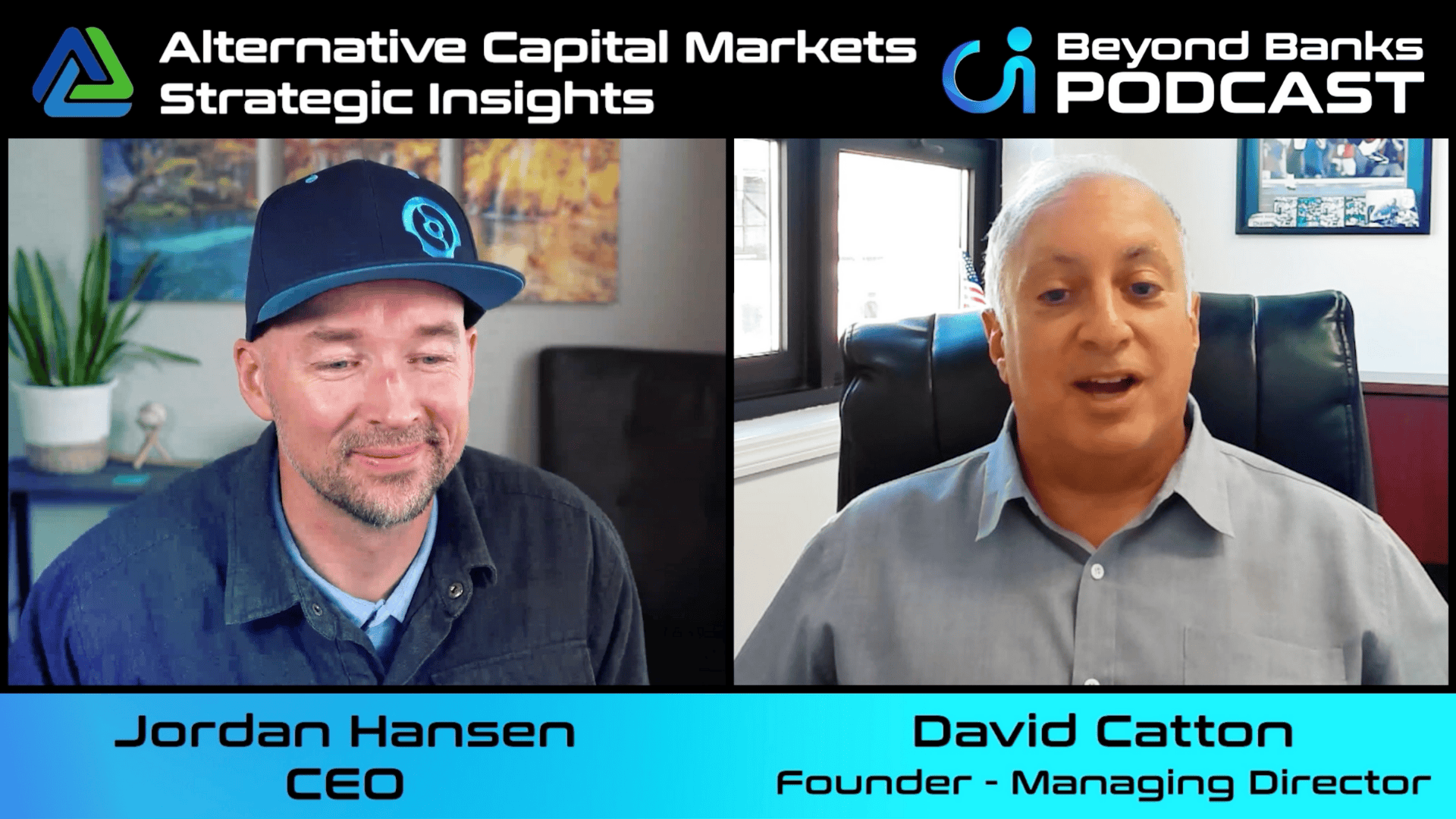
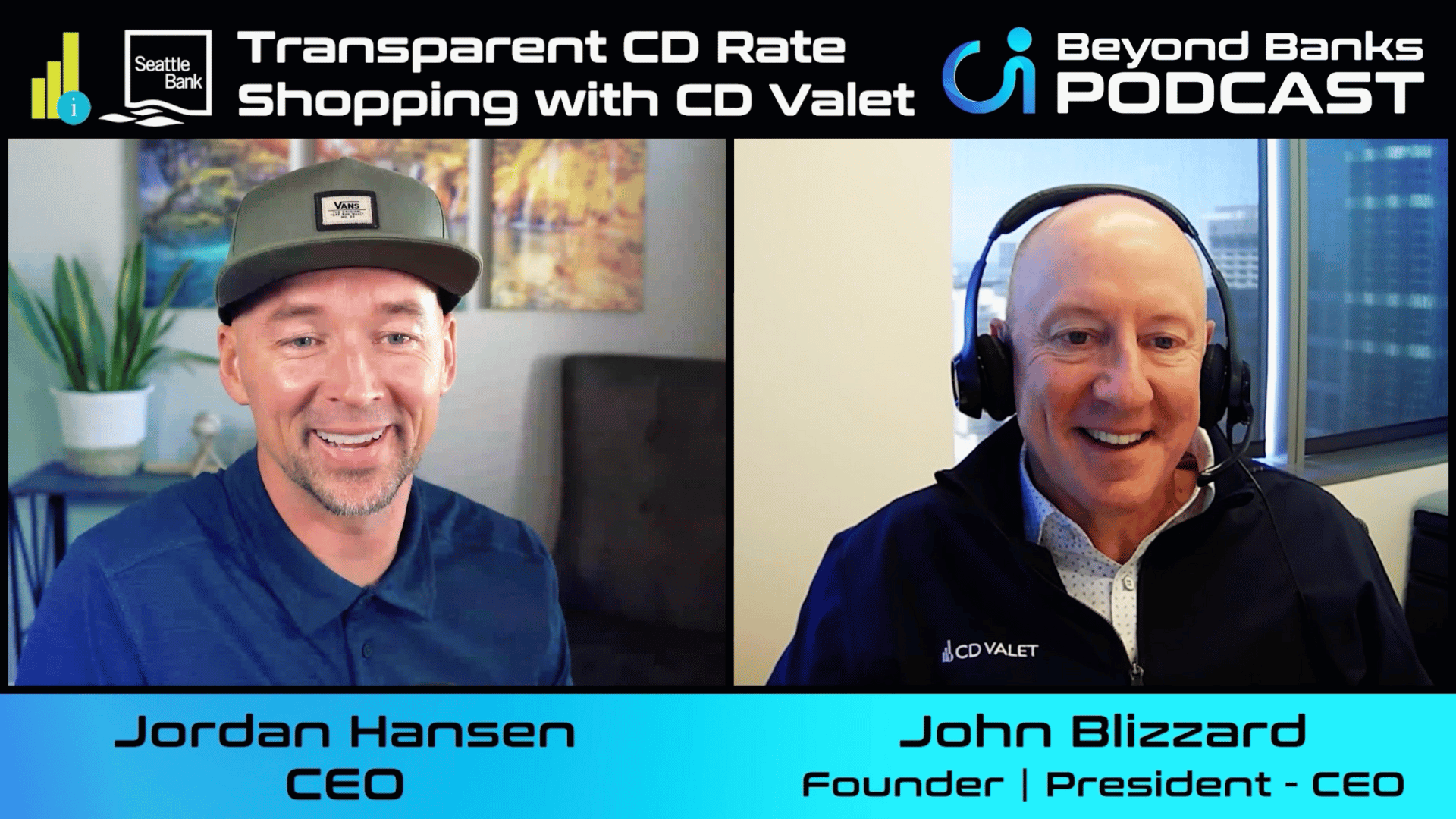


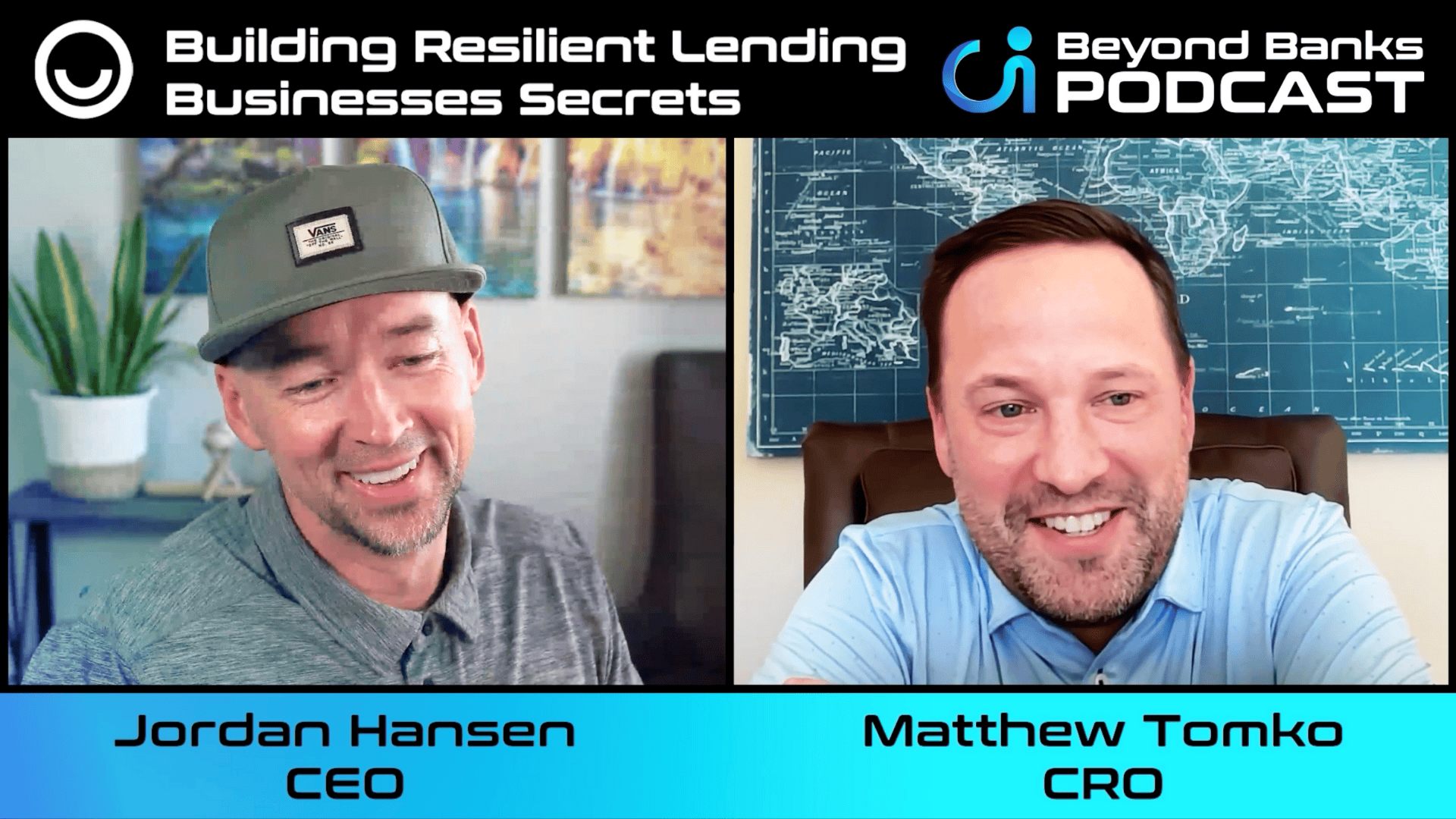

.png)
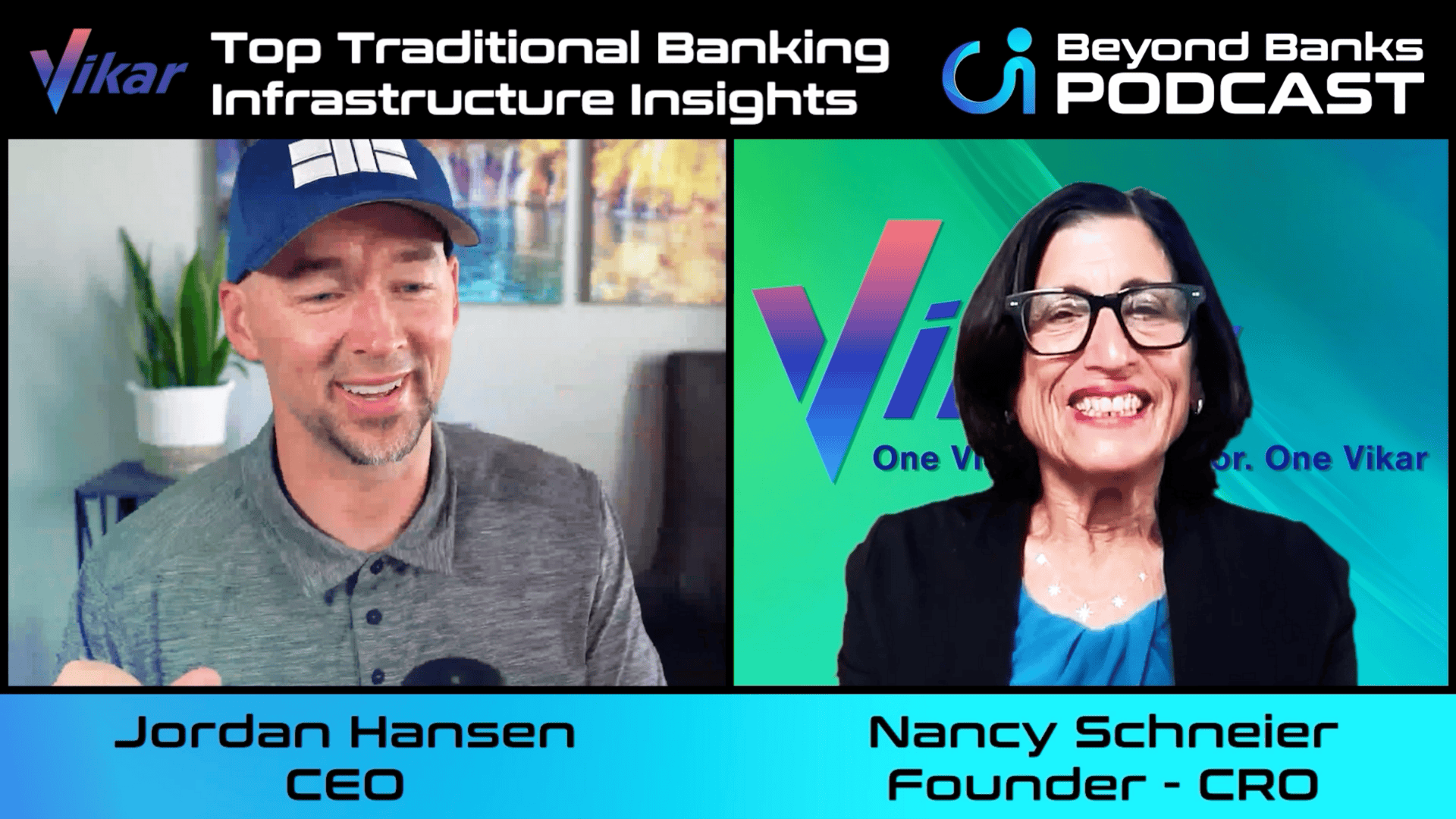
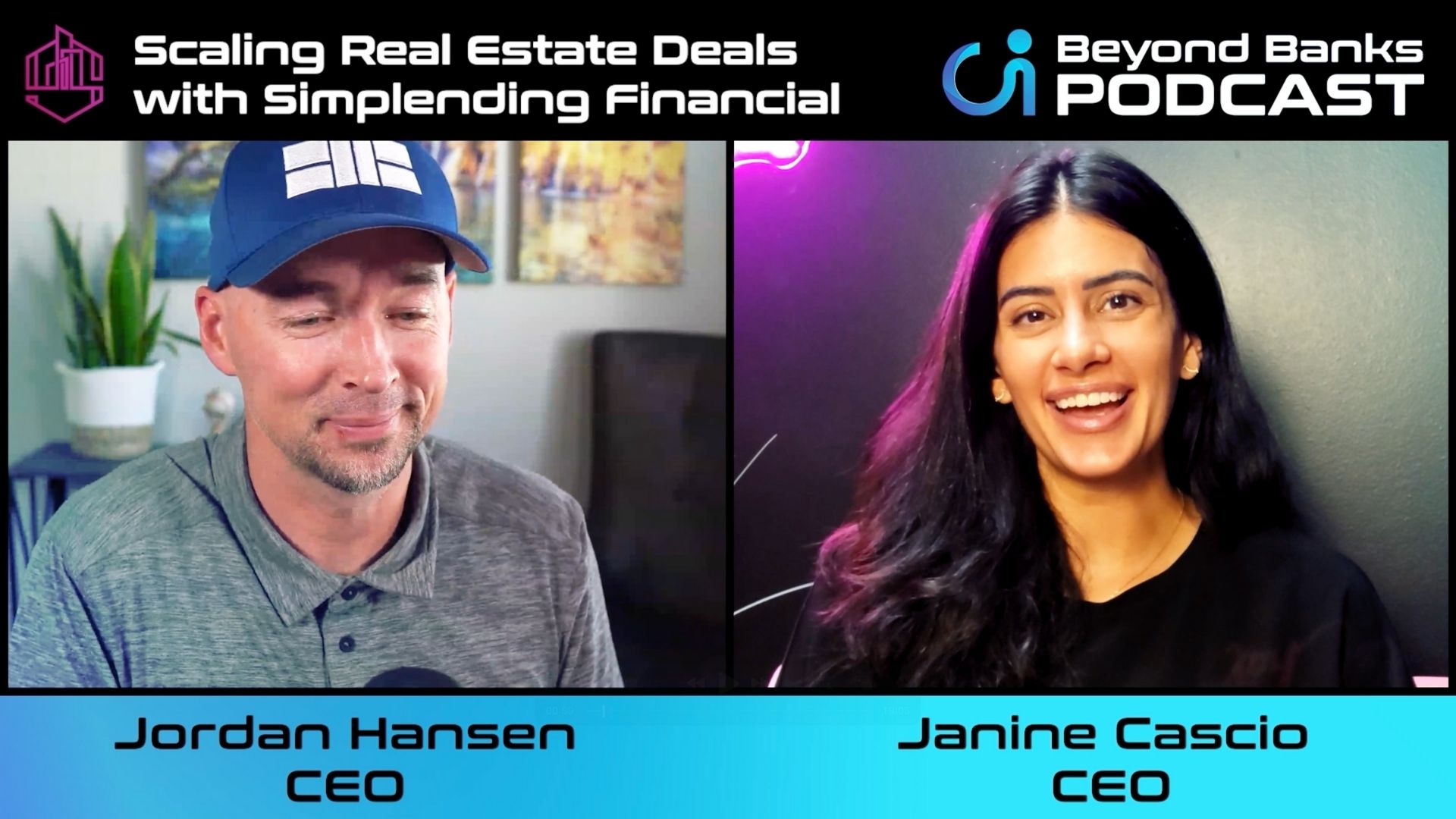
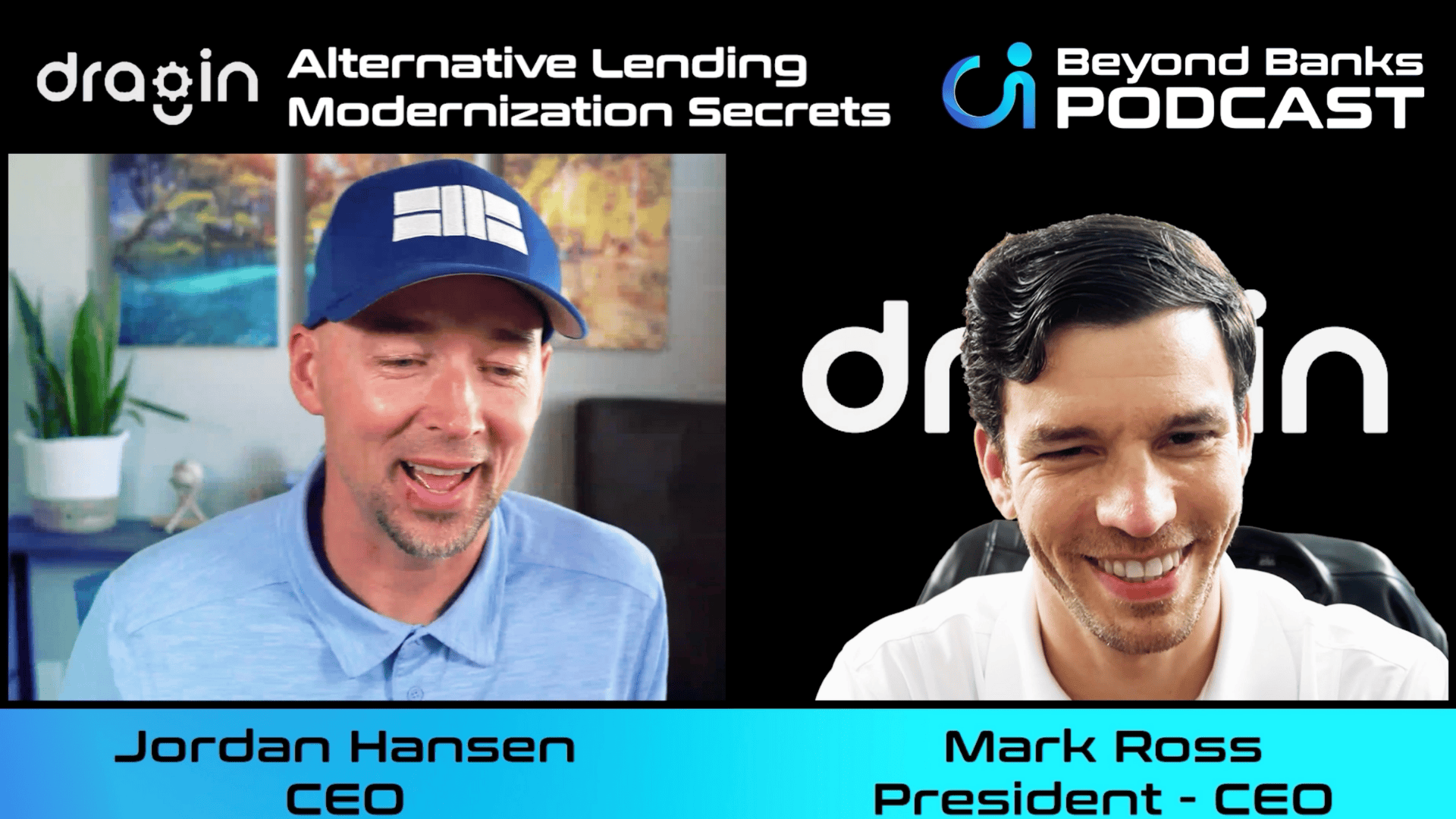
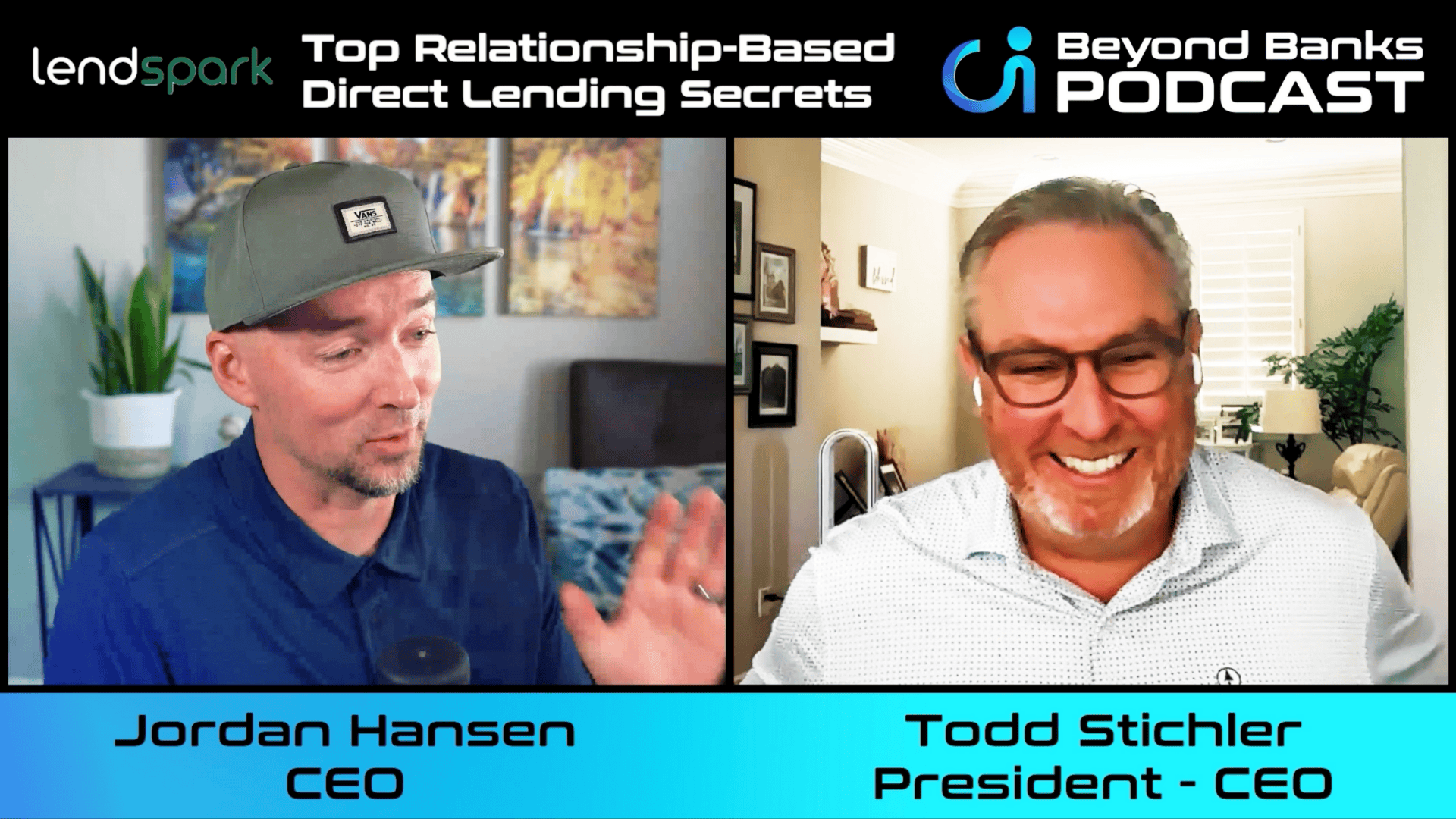
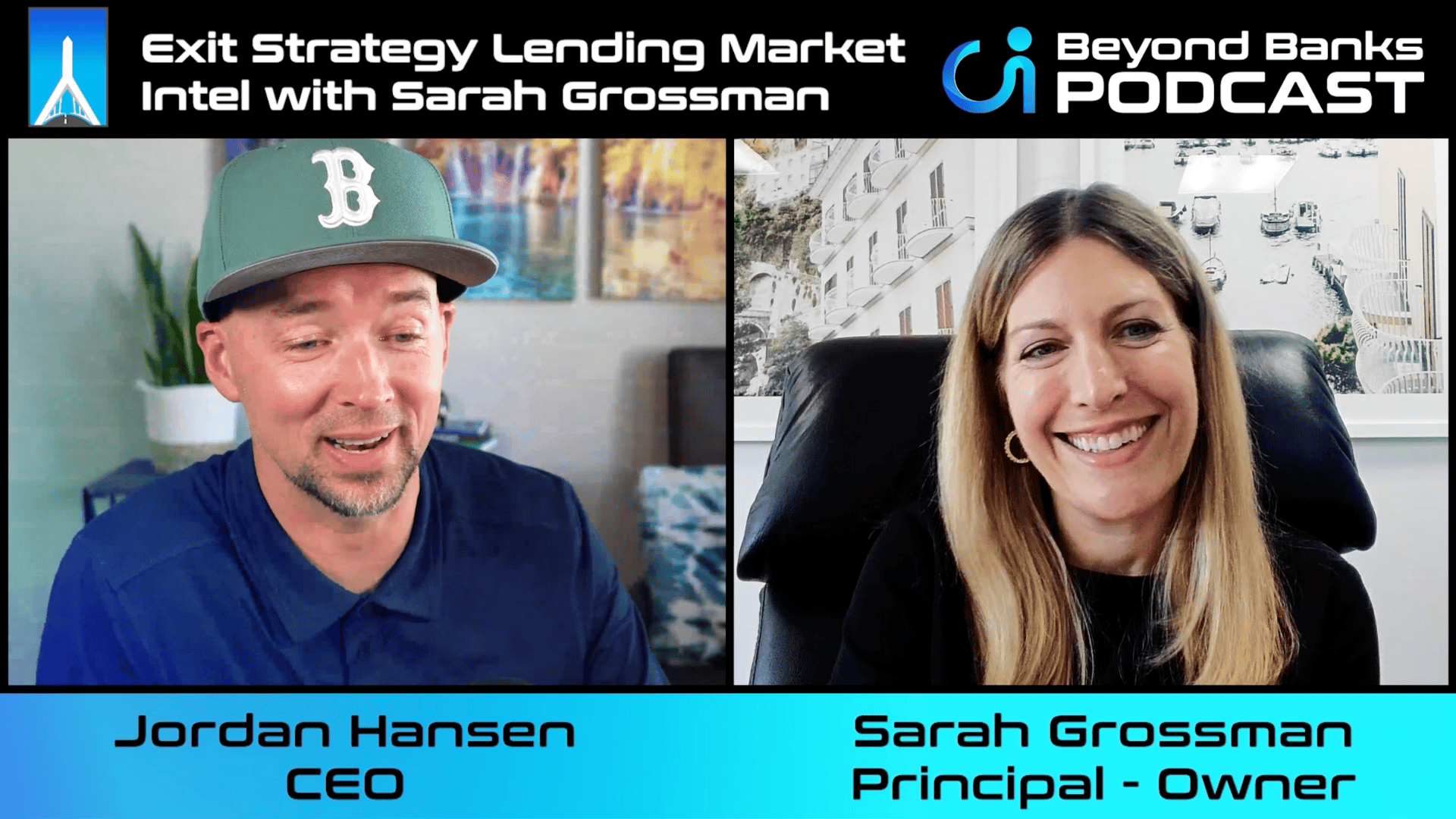
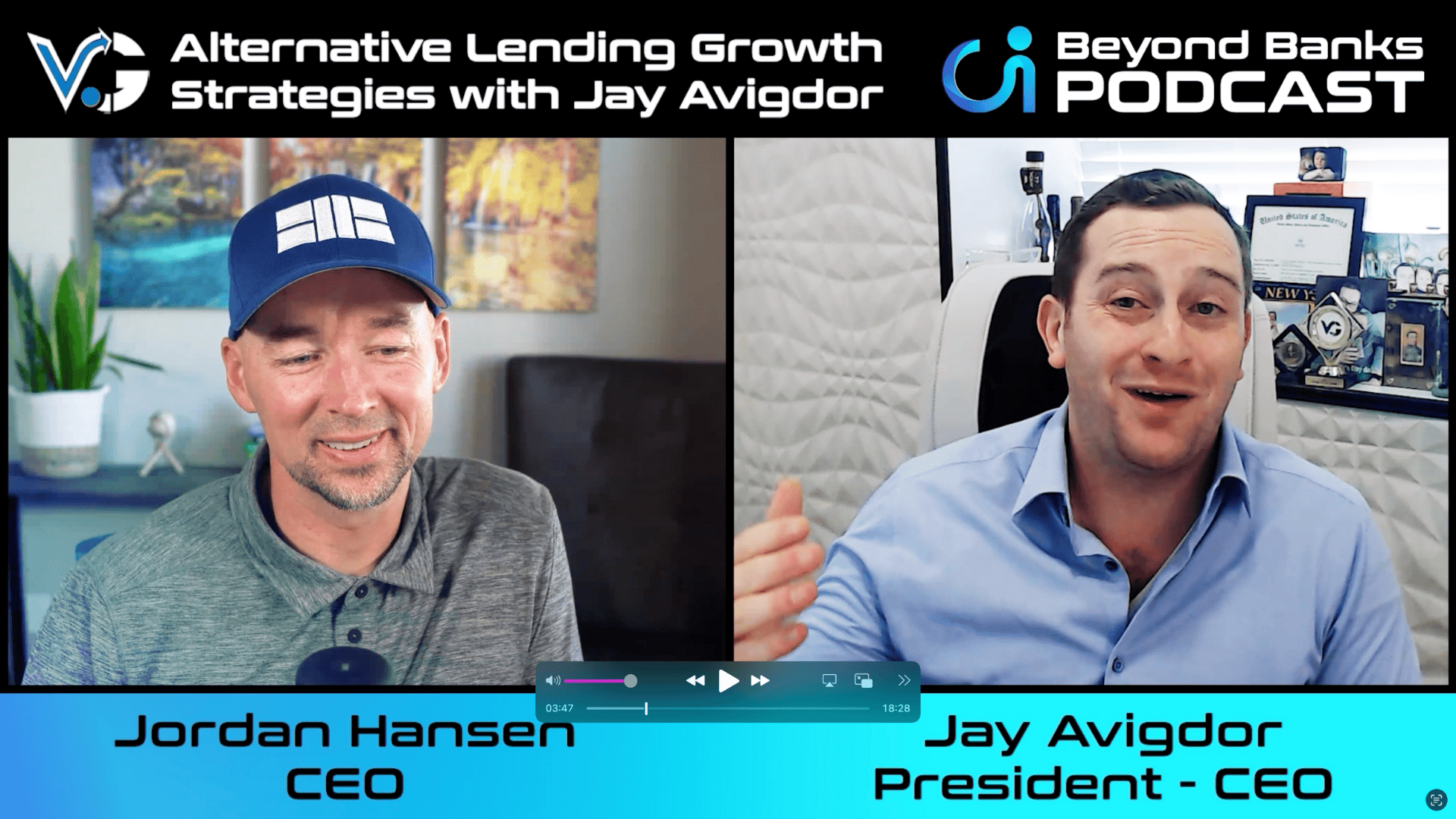
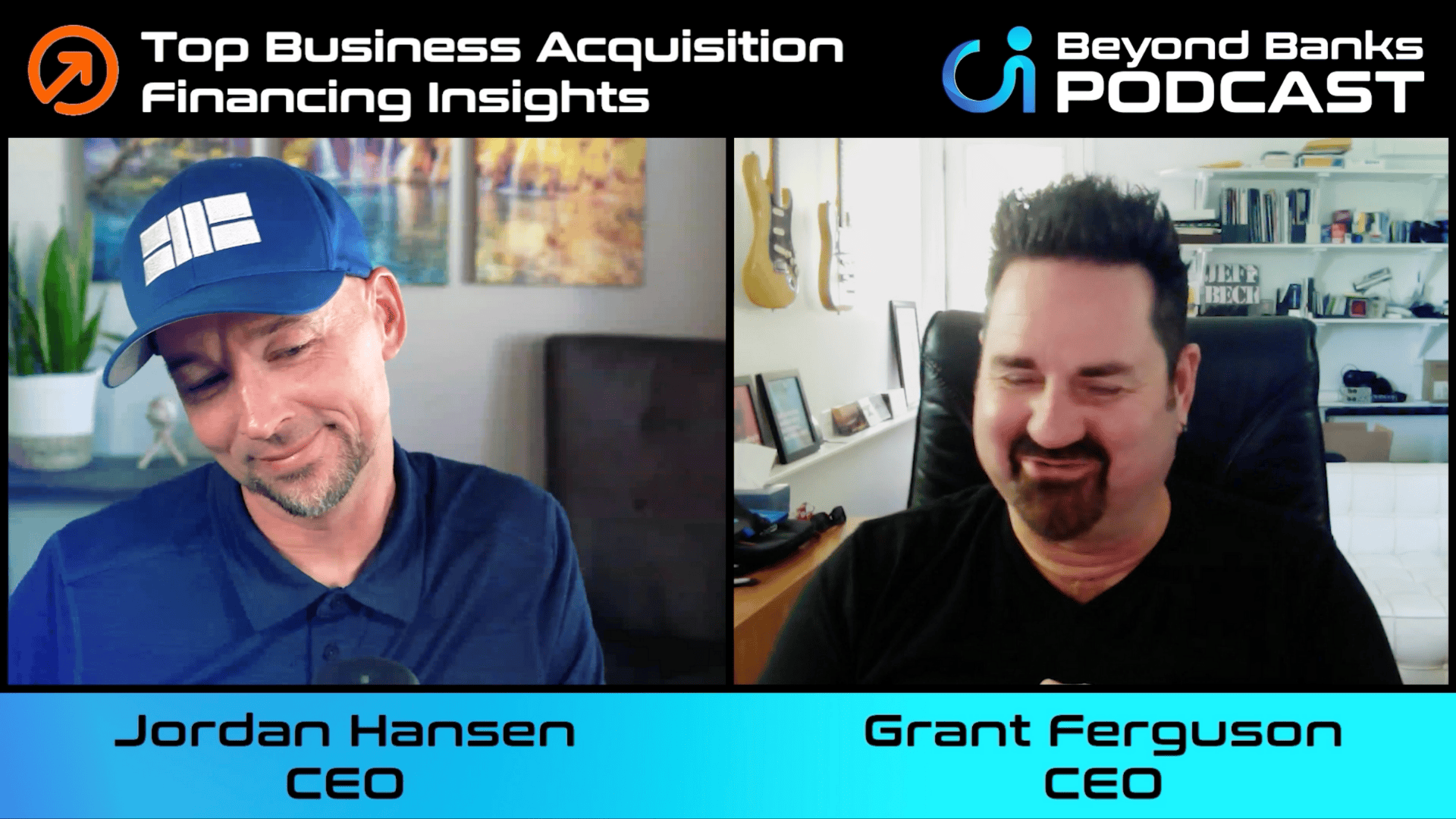
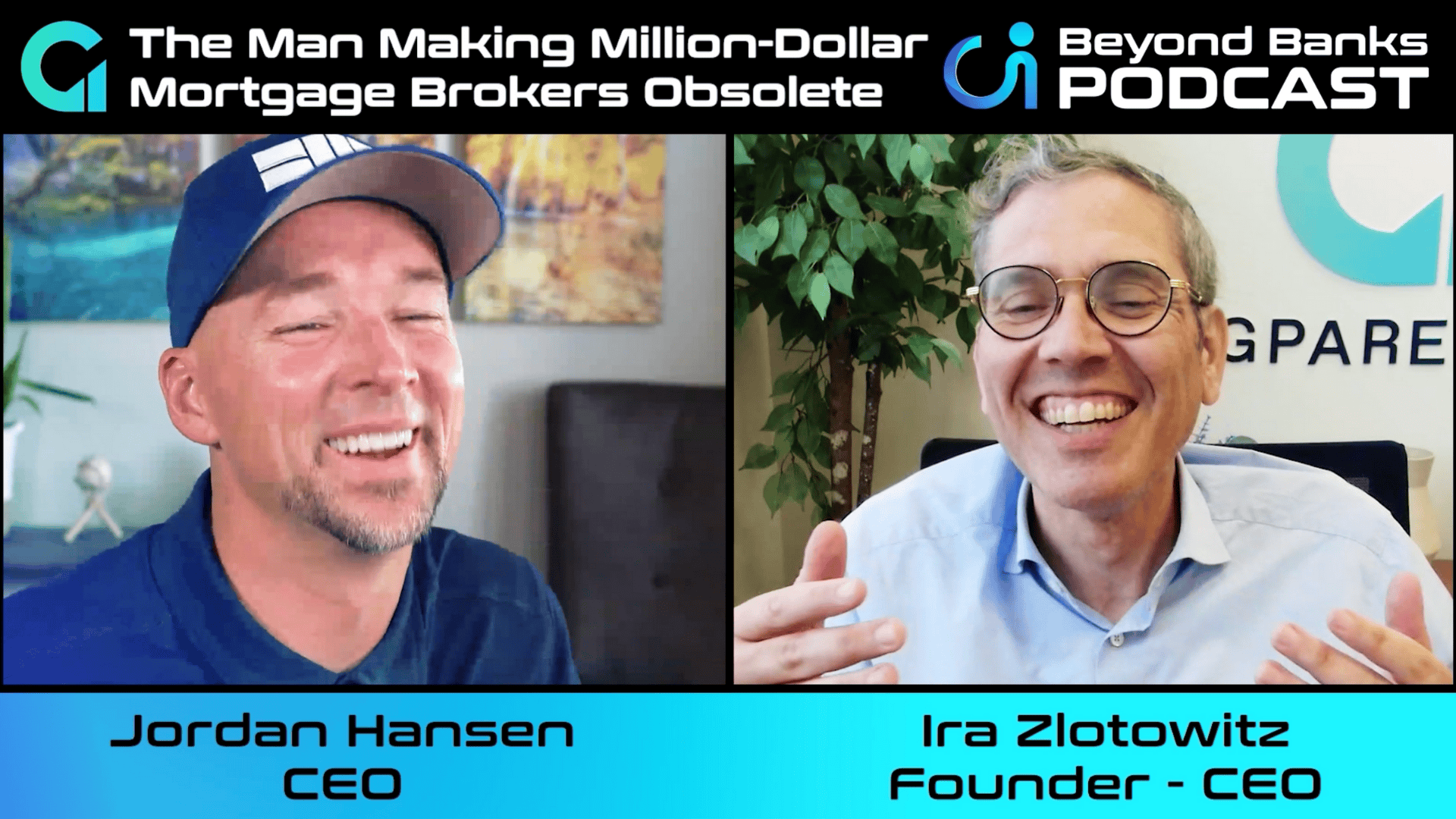
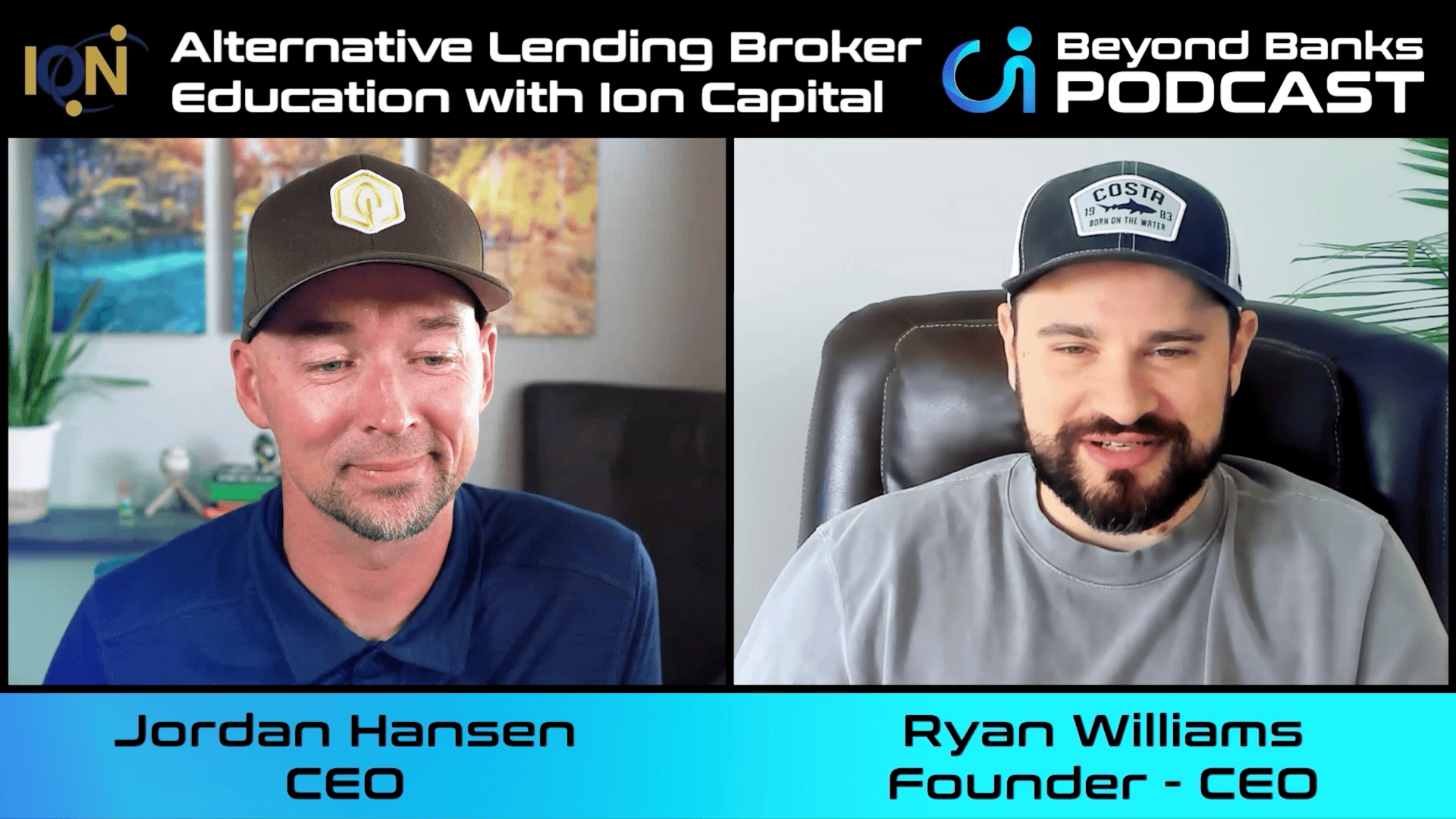
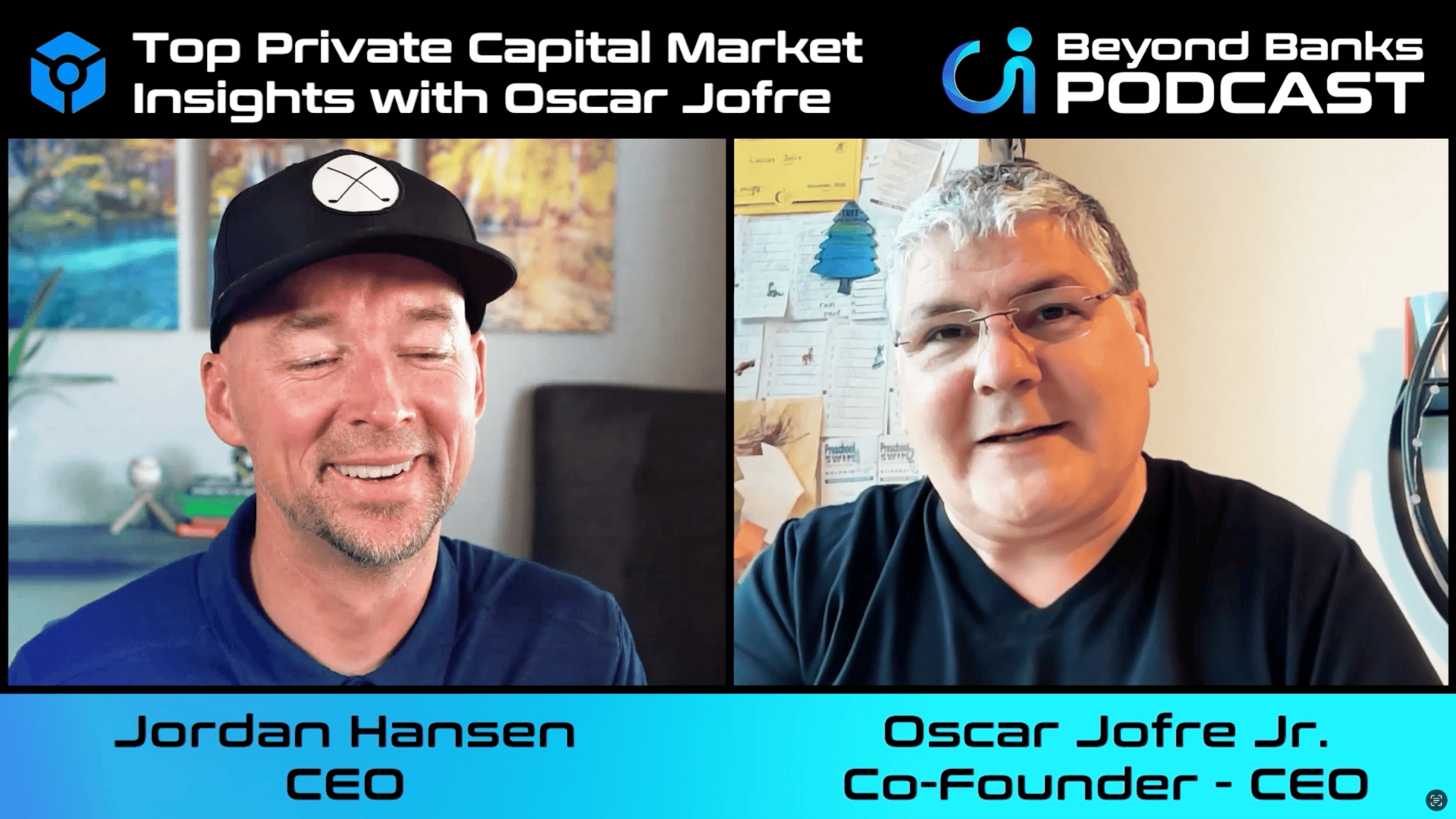

















.png)